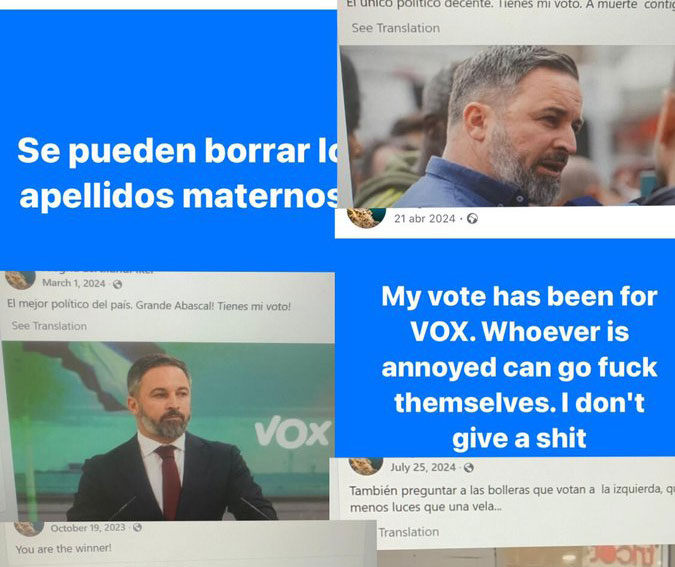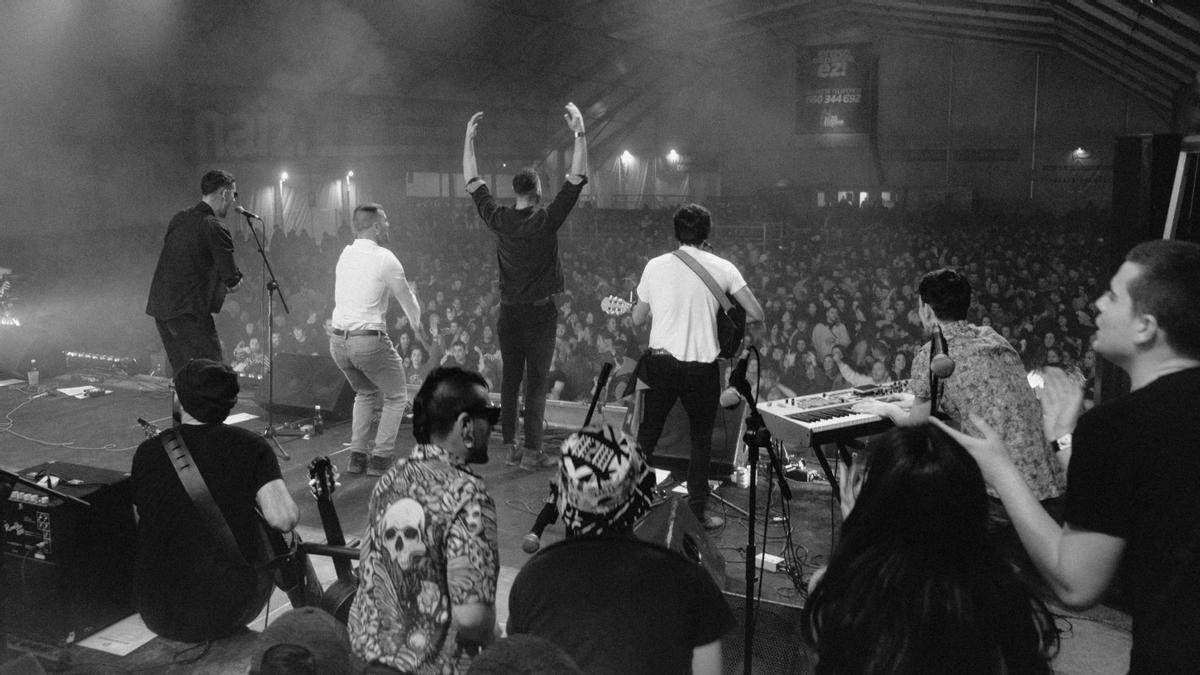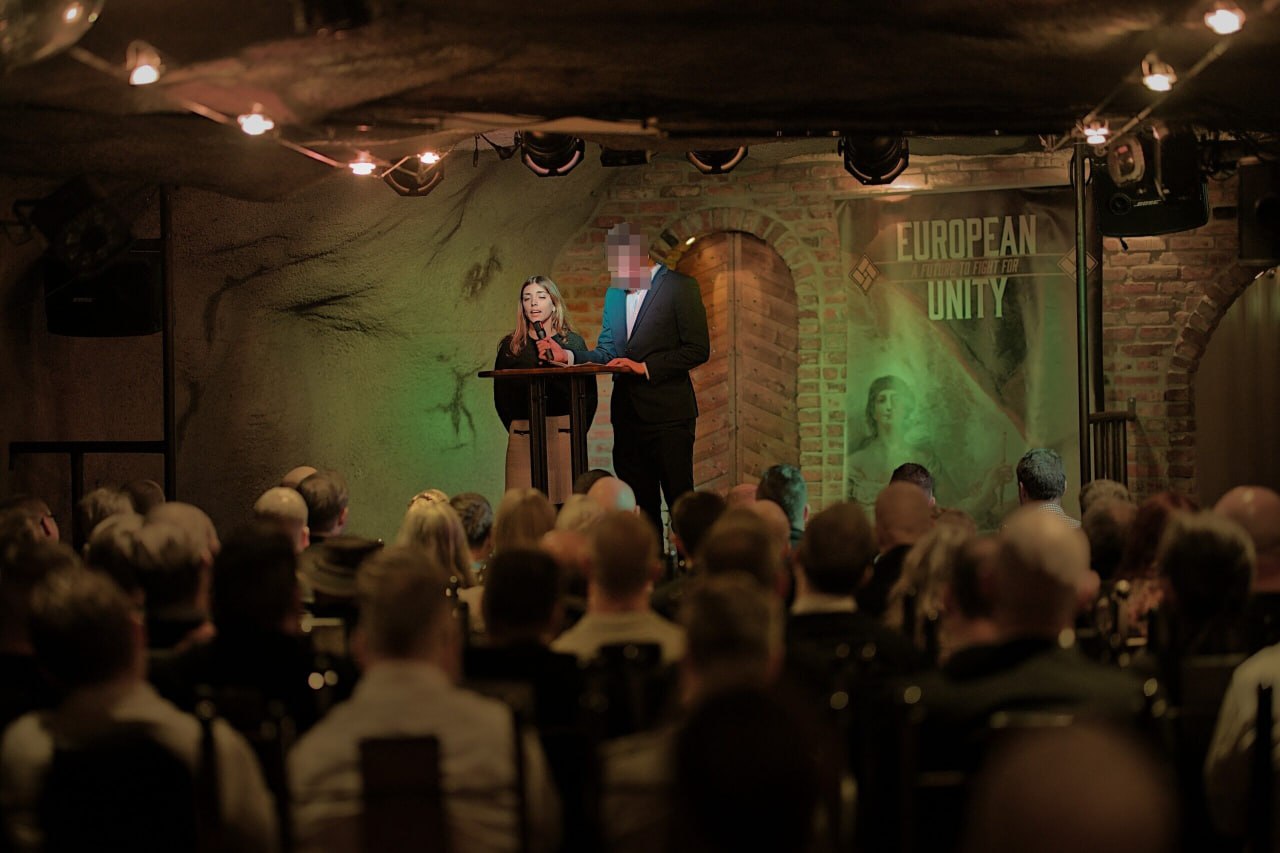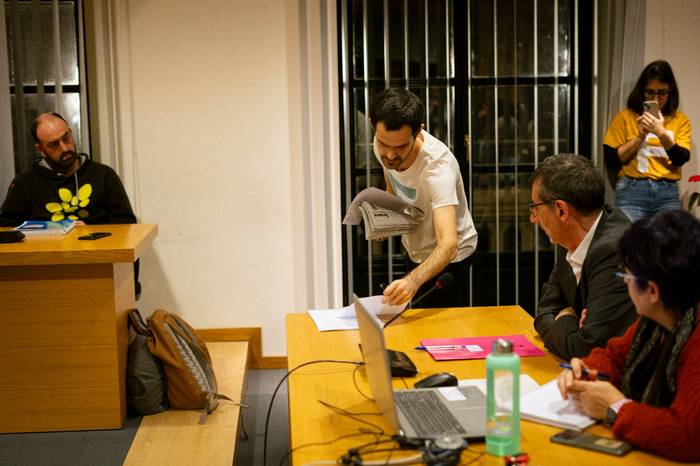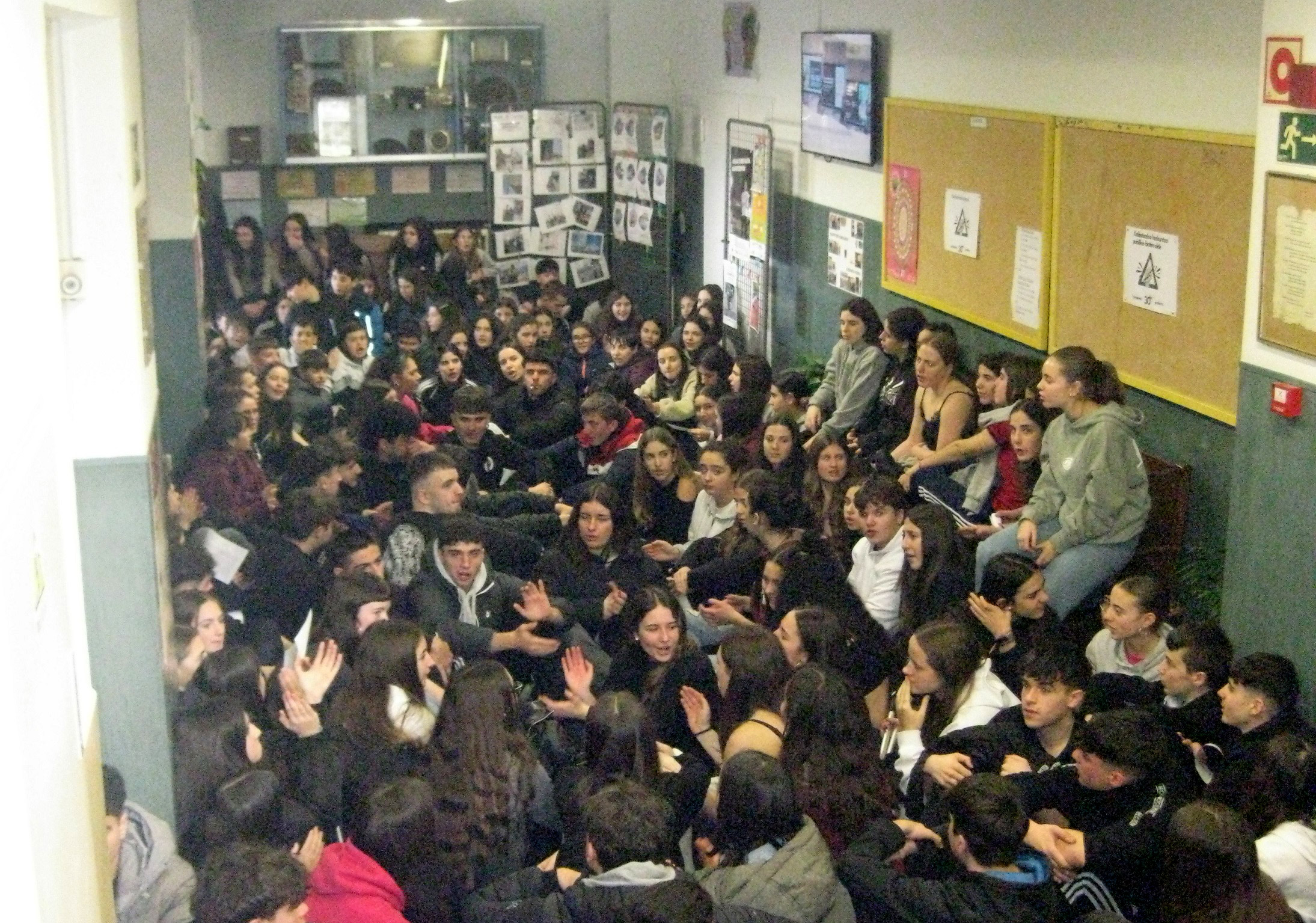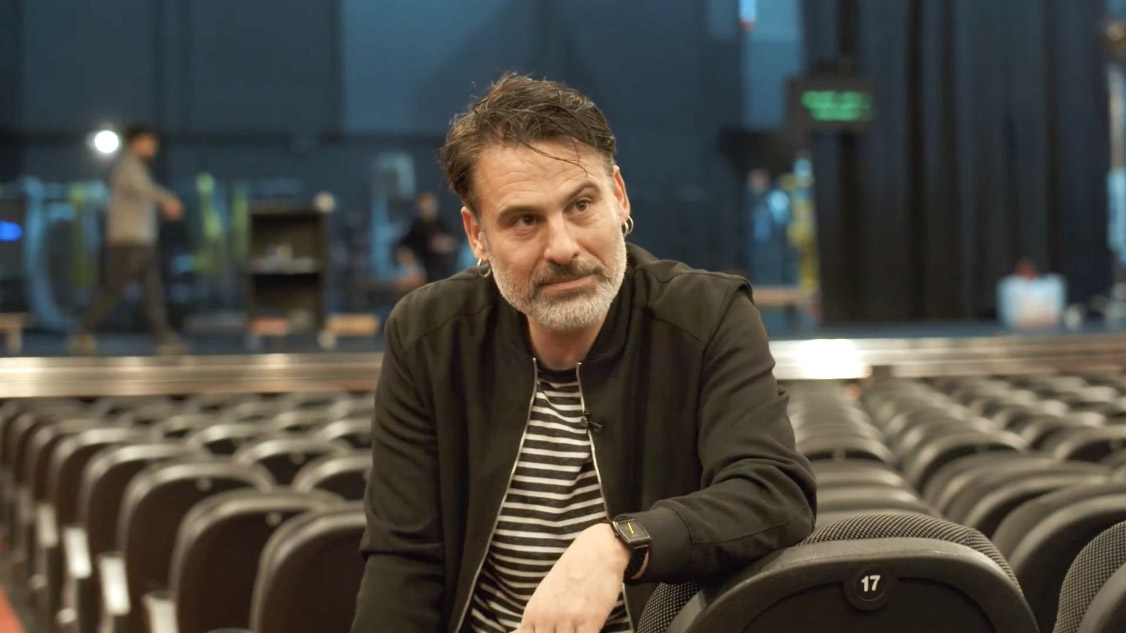"Pesticides and incinerators are crimes against humanity"
- I went into the clinic and the doctor started talking to me.
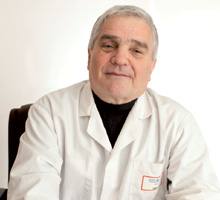
health has been plagued since World War II. If we take the latest social security data, one out of every seven French people has a severe chronic infection, but with the figures of chronic infections that the social security does not take care of, we arrive at one out of every three or two French people. One million have cancer, more than three million are diabetic, one in three French people have abnormal blood pressure, 20% of society is allergic... until the beginning of the 20th century there was no Alzheimer’s, today we have a million patients. They also tell us to be calm, that it is a disease that strikes us in old age, but it is false, it also affects young people. It is no coincidence that one in a hundred children is autistic, that three in a hundred have a rare disease at birth, or that one in seven children is asthmatic in Europe. All of them have barely existed until recently, but today we are in the reddest of the plague, the epicentre of the earthquake, and if nothing is done, we may be on the verge of an earthquake plague.
To what is the chronic data transfer due?
On the one hand, there are classical explanations. Today, we detect these diseases much better, we eat too many chicks instead of vegetables and fruits, we live suffocated by tobacco and intoxicated by alcohol, we don’t do enough sports, we carry a sedentary overload... Are these explanations credible, high? No, no, and no. The factors mentioned facilitate the development of diseases, but they are not their direct causes. I have researched the cancer model, and although one in four cancers is closely linked to tobacco, it should not be forgotten that not tobacco, but the chemicals found in cigarettes, cause cancer. And what about three-quarters of the other cancer cases?
Alcohol is not carcinogenic by itself, the food imbalance between fats and vegetables is not carcinogenic by itself, not doing sports is not carcinogenic by itself... So where are these carcinogenic factors? In our polluted environment. This happens not only with cancer, but with most new diseases. Epidemiological studies are having a hard time proving this, but while research for some seems to end in epidemiology, we cannot ignore the central issue of public health in modern societies. The physical and chemical pollution of the environment is directly related to the increase of diseases, which will lead to the explosion of social security. How can social security support the fact that one in two people is sick? We are facing a much more serious problem than that of the Retret, and the great majority has not even realized it yet.
But the collapse of the health care system will lead to an intentional and desired revolution. Can this lead us to radically change our way of life and truly care for the environment?
Two factors will trigger a colossal revolution that, beyond social change, can create a change of civilization. On the one hand, before the end of the century we will find the oil hitch and when throwing the car will be ten times more expensive than today, or when the plane tickets will cost ten times more than today, it is obvious that we will not be able to live as we do now and that another social model will be born. We have to admit that at the end of the century we will be able to travel much less than we do today and we will be a society of proximity. The other factor is the public health problem. I believe that in five to ten years' time our social security will explode, that they will not be able to pay even the quarter they take on today, and that threatens to create two-way medicine. In this system, the rich will be denied private insurance and will not have any healing problems, but people who do not have small dogs will die abandoned by society. I can’t accept that, and I fight blindly because I don’t accept that, for medicine to investigate causes rather than the effects of diseases. That is why I say that it is necessary to reduce pollution at the root. That's why I'm shocked when they put an antenna near a mother's school that scatters electromagnetic waves. That is why I say that pesticides and incinerators are crimes against humanity. When will we learn that the intensity of the doses does not, that the non-tai repeat of the dose makes the poison?
If we're not the most infamous poison...
Why do you think that in addition to the increase of cancer and new diseases, the problems of reproduction of the species are becoming more and more evident? In Europe, one in three couples has been shown to be gradually installing infertility, and we know that, in half of these cases, the culprits are pesticides. However, pesticides pose another serious problem. In addition to causing diseases, they prevent the reproduction of the humus and sterilize the long-year soils. That’s what’s happening in Martinique. Ten percent of its land will be sterile for the next thousand years, and 80 percent of the remaining land will take six to seven centuries to recover. If you add to that the pesticides pollute the streams and rivers... That is why I say that they are a very pure crime against humanity. Incinerators in the same way. But we live in a society that makes no sense, and we have no other solution than revolution. We need an ideological and cultural revolution, but also an economic, social, and political revolution. We need to go from poison to antidote.
Now that you've mentioned Martinique, let's talk about the strength of the lobbies. When you wrote the report that highlighted the black effects of pesticides used on Antillean lands, everyone jumped at your neck. When time has proved you right, nothing appears anywhere.
In 2004, we issued the Paris Appeal, in which we proclaimed that most diseases were linked to chemical pollution, that France was in danger, and that if the world continued to be polluted in this way, the human being was not legally safe as a species. The manifesto was signed by 250,000 people from all over Europe, 1,500 NGOs, three French Nobel laureates in medicine, numerous world-class scientists... I wasn’t alone, but then the chemical industry lobbies, and pesticide lobbies in particular, blinded me. They tried to prove that I was a lonely, isolated fool, but they had nothing to do with it. After the Antilles report, however, the lobbies were more cautious and sent politicians to bark, arguing that we were facing a state problem that I had not seen when I wrote the report. In 2007 I went to the Antilles to do my medical work, called by some local associations and parliamentarians, and I could only write the report that I wrote, because although we each have our own truth, the reality is one and only.
Over time there have been multiple manipulations, it was also revealed that I retracted my positions and annulled the report, all of it the puppy of the dog. As for chlordecone being the most widely used and toxic pesticide, I only said that the effects we are currently suffering were those of other pesticides and that we will suffer the consequences of chlordecone in a few years. What does that mean? I pointed out that we are only at the beginning of the problem, that this contamination will last for centuries and that the diseases will increase. What is curious is that, a few years later, the most recent studies have given me full reason, that it has been shown that we are facing a serious health problem, and that people act as if I had never said anything. That’s why I’m only telling journalists to do their work with complete independence, not to fall into the manipulations of lobbies and politicians, to contrast everything they publish, and to realize, once and for all, that these are serious issues, that the health of our children and the survival of the species are at stake.
What are the urgent steps to take to leave a better world for our children?
There are two ways to look at the development and solution of the problem. The first is that of step-by-step reforms, moving forward in small steps to the establishment of a real health policy at the plant that is directly related to environmental policy. This requires a radical change of policy and mentality, because everything is linked, and for example, the refusal to use pesticides requires a reform of the common agricultural policy (CAP). In the case of incinerators, it would mean asking for moratoriums and working on alternatives that are fully profitable socio-economically and already exist. What is the problem of step-by-step reforms? That we would need more time than we have to transform the system in this way. Let's talk about France. What has France done to implement an effective policy linking the environment and health? Program “Le grenelle de l’environnement”. And what is “le grenelle de l’environnement”? Pure dictatorship of the word, total failure. More pesticides are used than before, incinerators are still being built, the increase in cases despite the decrease in cancer mortality has been steadily increasing, cases of autism and Alzheimer’s remain unresolved, and to address the situation in some way we are spending money researching the effects of diseases instead of deepening and investing in the causes. Why does this policy not work? Because linking the current economic system to a real ecological policy is like making the cat and mouse go with it, and the program, because today ecology only consumes the crumbs of the economy.
What is the second route you prefer?
The only chance to save humanity is to disrupt the system. In today’s landscape, there are economic interests above all, ecological interests survive by eating crumbs, and health “last, fat ass!” The system I'm defending is different. Economic interests must be placed at the service of human interests, at the service of ecological interests, at the service of health, because the world, if it does, will advance in the name of human interests, health and ecology. In this we have to be radical and radical, it is up to us to proclaim a real revolution, and little by little we should take the example that the Scandinavian peoples show us. The problem is that, unless the political powers make this bet, this revolution can only be carried out on the street, and from the moment that man steps on the street with fury, there is always a breach of violence. On the one hand I am afraid to get there, but on the other hand, when the peasants realize that they have sterilized their lands with intensive cultivation, and that they will leave their children lands that they cannot produce deus, what will happen? The first generations may fill their pockets selling land for concrete buildings, but who will feed us? What will happen when people realize that social security cannot cover the costs of disease and is doomed to die? Everyone will descend into the streets, but with so much severity of the problem, people will look not only at the root of the problem, but at those responsible and guilty. It is obvious that some will give up everything at the expense of the economic system, but the responsibilities and guilt of the main actors of this system will be more evident than ever. We've run out of white bread, and if we don't do anything, we're doomed to eat black bread. If we wait for the river to return to its path, we can be on the verge of a revolution that no one can control.
Vagina Shadow(iko)
Group: The Mud Flowers.
The actors: Araitz Katarain, Janire Arrizabalaga and Izaro Bilbao.
Directed by: by Iraitz Lizarraga.
When: February 2nd.
In which: In the Usurbil Fire Room.












